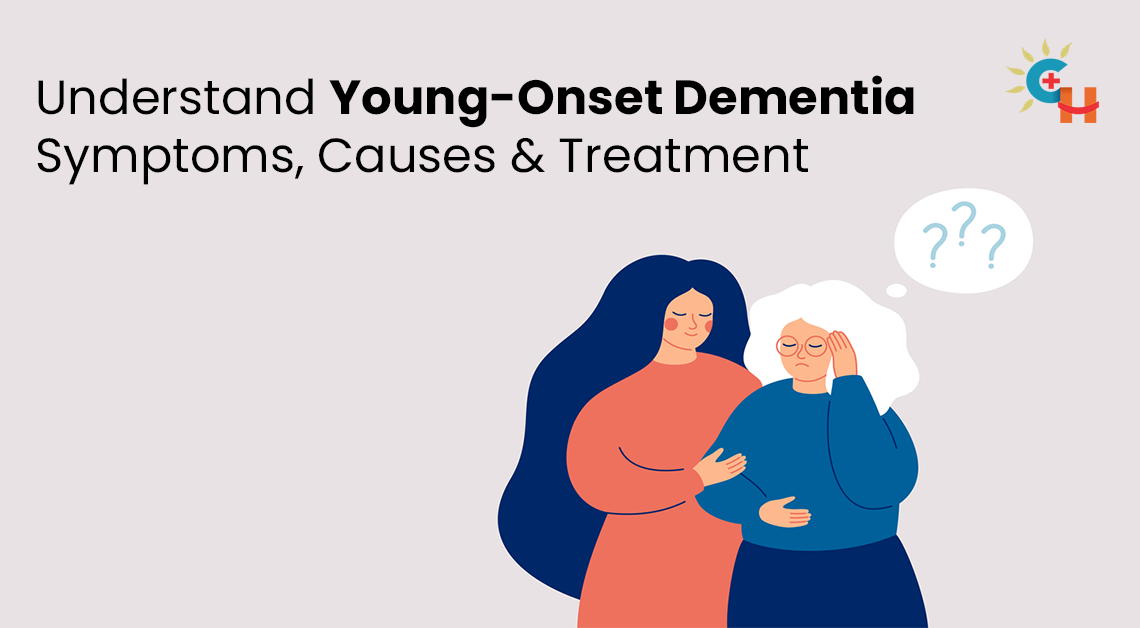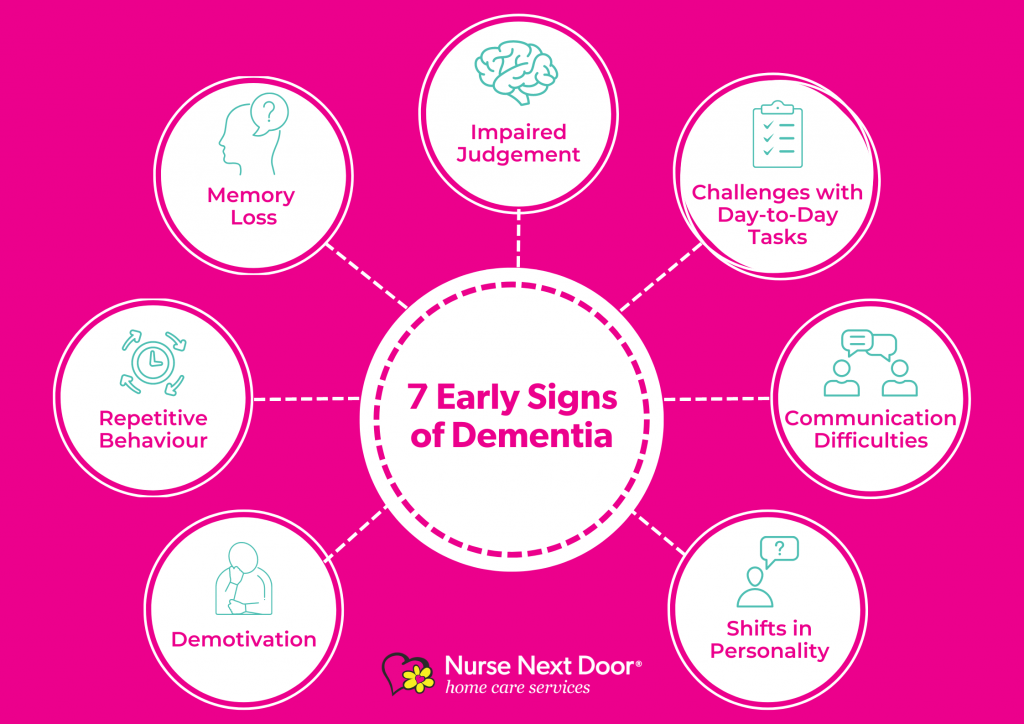Comprehending the Impact of Mental Deterioration on Daily Life and Caregiving
Dementia influences day-to-day life in extensive methods, impacting not simply those detected however additionally their caregivers. As cognitive decline advances, you may observe modifications in interaction and routine that obstacle both events. Comprehending these shifts is vital for preserving dignity and involvement. However just how do you adapt your caregiving methods to sustain someone traversing this complicated journey? The answers may amaze you as we check out the nuances of this experience.
The Phases of Mental Deterioration and Their Impacts on Life
As you navigate the journey of mental deterioration, recognizing its phases can substantially impact exactly how you take care of every day life. Mental deterioration normally progresses through 3 primary phases: early, middle, and late. In the beginning, you might discover periodic memory lapses or trouble locating the appropriate words. This can result in stress, but acknowledging these signs early helps you adjust your regular and look for assistance.
During the center stage, you'll experience extra recognizable cognitive decrease. Daily jobs might come to be challenging, and preserving your self-reliance might call for adjustments. Utilizing reminders and simplifying your environment can help.
In the late phase, people commonly need considerable aid with day-to-day tasks. Planning for care ends up being necessary, concentrating on comfort and quality of life. By understanding these stages, you're better outfitted to respond proactively, guaranteeing you or your loved one can browse the obstacles with dignity and grace.

Adjustments in Interaction and Social Interaction
How do adjustments in interaction impact your daily communications as mental deterioration progresses? As dementia advancements, you could observe that simple discussions come to be tough.
You might find it easier to connect through these means as opposed to depending entirely on spoken language. Listening skills can additionally alter; you might locate it more difficult to comply with conversations or keep in mind what was simply said (Early Onset Dementia). This can lead to misunderstandings or feelings of seclusion
Motivating perseverance and developing a supportive setting can help. Taking part in activities that foster link, like songs or art, can improve social communications. Bear in mind, maintaining partnerships is still possible; it's practically adjusting to brand-new means of connecting.
Influence On Daily Routines and Activities
While maneuvering daily routines, you'll likely discover that jobs you once finished easily become extra tough as dementia progresses. You might find yourself neglecting actions in familiar routines or struggling to remember where you positioned things.
Adjusting your setting can help; for circumstances, identifying things or utilizing checklists can simplify jobs. Engaging in recurring, organized tasks can likewise offer convenience and a feeling of accomplishment. Remember, it's fine to ask for aid.
Emotional and Behavior Obstacles
Guiding via daily regimens can bring about not simply functional obstacles, but behavior and also emotional ones. You might notice changes in state of mind, such as enhanced anxiousness or stress, which can originate from confusion or trouble in completing tasks. As you browse these moments, it is important to acknowledge that your enjoyed one might reveal their sensations via habits like frustration or withdrawal.
These psychological feedbacks can be unpredictable and may occur without caution, leaving you both feeling bewildered. You may find that familiar environments or regimens can help in reducing anxiousness, but maintaining persistence comes to be substantial. It is crucial to verify their sensations, also if you do not totally recognize them.
The Function of Caregivers in Supporting People With Mental Deterioration
As a caretaker, you play an essential role in giving psychological assistance for people with mental deterioration. Establishing day-to-day treatment regimens can develop a sense of stability and convenience, assisting to alleviate their anxiety. By recognizing their needs and utilizing efficient approaches, you can significantly enhance their lifestyle.
Emotional Assistance Approaches
When caring for someone with mental deterioration, recognizing the psychological landscape is vital for offering reliable support. Basic motions, like holding their hand or keeping eye call, can produce a sense of safety and security. Ultimately, do not fail to remember to take care of your own psychological requirements; seeking assistance for on your own can improve your capacity to care for them.
Daily Care Routines
Establishing daily treatment regimens is essential for supplying stability and comfort to people with mental deterioration, as these regimens can help in reducing complication and anxiety. You can begin by laying out a constant schedule for meals, tasks, and remainder. This predictability helps your loved one feel extra secure and involved.
Include familiar helpful site tasks, like folding laundry or watering plants, which can evoke favorable memories and cultivate a feeling of accomplishment. Usage aesthetic signs, such as lists or schedules, to direct them through the day.
Be versatile, though; adapt routines as required based upon their state of mind or power degrees. Early Onset Dementia. Keep in mind, your patience and understanding are crucial in steering their changing needs, ensuring they really feel sustained additional info and valued throughout their every day life
Creating a Safe and Comfy Living Atmosphere
Developing a comfy and safe living setting is essential for people with mental deterioration. You'll intend to make home safety alterations that lower risks and assure knowledge to supply a feeling of convenience. By focusing on these facets, you can assist develop an area that sustains both security and wellness.
Home Safety And Security Modifications
As you browse the difficulties of dementia, making home security modifications can considerably improve convenience and protection. Tag crucial areas, such as the restroom and cooking area, with clear indicators to assist with orientation. These adjustments not just advertise security yet additionally motivate freedom, enabling your enjoyed one to really feel even more at convenience in their setting.
Comfort and Knowledge
After guaranteeing a safe setting with required alterations, cultivating convenience and experience is necessary for individuals with mental deterioration. Maintain a consistent regular to aid them really feel based and lower anxiousness. Engaging in familiar tasks, such as paying attention to songs or horticulture, can improve their sense of belonging, making their living setting a true haven.
Strategies for Reliable Caregiving and Support
While maneuvering the challenges of mental deterioration care can feel overwhelming, executing efficient techniques can significantly boost both the caregiver's and the patient's everyday experience. Beginning by developing a regimen; predictability helps minimize anxiety for both you and your enjoyed one. Usage clear, straightforward interaction-- brief sentences and direct questions can avoid complication.

Don't fail to remember to look after on your own; timetable breaks and attach with support teams. Sharing experiences with others in comparable circumstances can offer beneficial understandings and emotional relief.
Finally, stay person and flexible. Mental deterioration can bring unforeseeable modifications, so adjusting your method is necessary. By using these techniques, you can foster a more favorable setting that benefits both you and your liked one.
Frequently Asked Questions

What Are the Various Kinds Of Mental Deterioration?
You'll find several sorts of mental deterioration, consisting of Alzheimer's, vascular mental deterioration, Lewy body dementia, and frontotemporal mental deterioration. Each kind impacts memory and cognitive feature in a different way, so recognizing the distinctions is important for correct diagnosis and care.
Just How Can I Aid Somebody With Early-Stage Mental Deterioration?
You can aid someone with early-stage mental deterioration by being individual, using assistance, and encouraging them to participate in activities they enjoy. Maintaining routines consistent and keeping open communication can additionally make a considerable distinction in their every day life.
Are There Financial Resources Available for Mental Deterioration Treatment?
Yes, there are economic sources available for mental deterioration care. You can discover government support programs, not-for-profit organizations, and insurance alternatives. It's also wise to seek advice from neighborhood agencies for particular resources tailored to your situation.
What Legal Considerations Should Caregivers Recognize?
As a caretaker, you should consider power of lawyer, healthcare proxies, and guardianship legislations. It's necessary to comprehend the legal civil liberties and responsibilities you hold, ensuring your enjoyed one gets suitable care and security.
Just How Can I Handle Caretaker Tension?
You can handle caregiver tension by prioritizing self-care, seeking assistance from teams or close friends, establishing reasonable assumptions, taking breaks, and exercising relaxation strategies. Keep in mind, your well-being matters equally as long as the individual you're taking care of.
Understanding the Effect of Dementia on Daily Life and Caregiving.
As you browse the journey of mental deterioration, understanding its phases can markedly affect just how you handle everyday life.While navigating daily routines, you'll likely discover that tasks you as soon as finished effortlessly become more tough as dementia proceeds.Establishing daily treatment routines is important for supplying stability and convenience to individuals with dementia, as these regimens can aid lower confusion and anxiety.While maneuvering the difficulties of mental deterioration care can really feel overwhelming, executing reliable techniques can significantly boost both the caregiver's and the client's day-to-day experience.